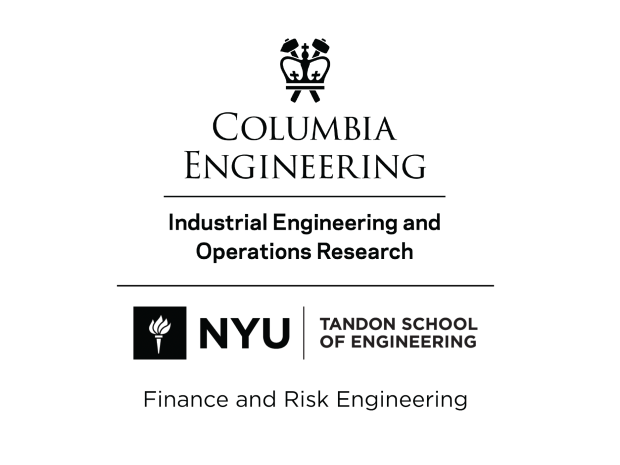Columbia & NYU Financial Engineering Colloquium: Yu-Jui Huang & Ludovic Tangpi

Yu-Jui Huang

Title
Partial Information Breeds Systemic Risk
Abstract
This talk considers finitely many investors who perform mean-variance portfolio selection under a relative performance criterion. That is, each investor is concerned about not only her terminal wealth but how it compares to the average terminal wealth of all investors (i.e., the mean-field). At the interpersonal level, each investor selects a trading strategy in response to others' strategies (which affect the mean field). The selected strategy additionally needs to yield an equilibrium intra-personally, so as to resolve time inconsistency among the investor's current and future selves (triggered by the mean-variance objective). A Nash equilibrium we look for is thus a tuple of trading strategies under which every investor achieves her intra-personal equilibrium simultaneously. We derive such a Nash equilibrium explicitly in the idealized case of full information (i.e., the dynamics of the underlying stock are perfectly known), and semi-explicitly in the realistic case of partial information (i.e., the stock evolution is observed, but the expected return of the stock is not precisely known). The formula under partial information involves an additional state process that serves to filter the true state of the expected return. Its effect on trading is captured by two degenerate Cauchy problems, one of which depends on the other, whose solutions are constructed by elliptic regularization and a stability analysis of the state process. Our results indicate that partial information alone can reduce investors' wealth significantly, thereby causing or aggravating systemic risk. Intriguingly, in two different scenarios of the expected return (i.e., it is constant or alternating between two values), our Nash equilibrium formula spells out two distinct manners systemic risk materializes.
Ludovic Tangpi

Title
Probabilistic approach to discounted infinite horizon mean field games
Abstract
We extend the weak formulated mean field game to the infinite time horizon setting with a discounted reward function. Under mild regularity conditions, we prove the existence of solutions to both the extended and non-extended mean field game. The key idea is to introduce a new topology that can be seen as a local version of the stable topology classically used in the finite horizon case. Further, we will further discuss how finite horizon mean field games relate to the infinite horizon counterparts. Lastly, as applications of our results, present results about invariant mean field games.
The talk is based on a joint work with Rene Carmona and Kaiwen Zhang.

